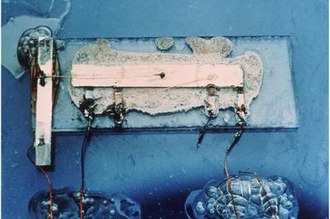One thing which usually happens in 4X games is that tech can be stolen/traded or even reverse engineered. The problem is that it is often represented in a very simplistic way.
When you encounter tech artifacts, it's likely they come from a much more advanced tech. The odds of "reverse engineering" should be no more than a Victorian society reverse engineering a smartphone. Not just tech, but the very functions it offers may be outside the understanding of the reserachers.
So how could this work? Recovering tech could give some research boost to related disciplines, maybe unlock a field of science?
When you encounter tech artifacts, it's likely they come from a much more advanced tech. The odds of "reverse engineering" should be no more than a Victorian society reverse engineering a smartphone. Not just tech, but the very functions it offers may be outside the understanding of the reserachers.
So how could this work? Recovering tech could give some research boost to related disciplines, maybe unlock a field of science?




